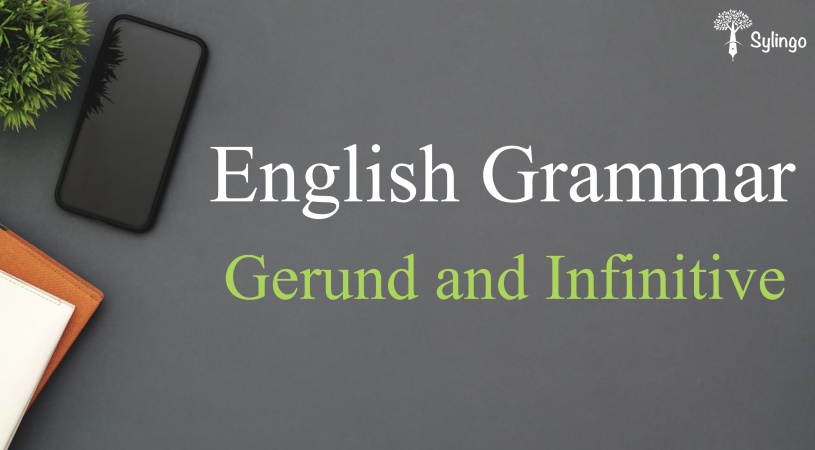There are two different forms of the verb in English. The first form is the infinitive, and the second form is the verb with (ing) at the end. We will discuss in this lesson these two forms.
Gerunds
The form is (verb + ing).
We often use gerunds when the action occurs before or at the same time as the main verb in a sentence.
Example: I enjoy cooking. (I am cooking and enjoy cooking at the same time)
Gerunds can come after certain verbs, prepositions, or expressions in sentences.
1- After state verbs:
|
Like |
|
Love |
|
Enjoy |
|
Dislike |
|
Hate |
2- After the verbs:
|
Admit |
|
Allow |
|
Deny |
|
Finish |
|
Go |
|
Imagine |
|
Keep |
|
Practice |
|
Suggest |
3- After some prepositions:
|
After |
|
Before |
|
Interested in |
|
Keep on |
|
Good at |
4- After some expressions:
|
Look forward to |
|
Can not help/stand |
|
It is no use |
|
Would you mind |
5- At the beginning of a sentence:
|
Watching TV for a long time is harmful to your eyes. |
Examples:
|
I enjoy playing football. |
|
I like watching movies. |
|
She avoids meeting her friend. |
|
You mentioned working in the bank earlier. |
|
He is interested in traveling. |
|
After eating in the restaurant, we went home. |
|
It is no use replacing the car. |
|
There is no point in changing the lock. |
Infinitive verbs
The form is (to + verb) without any additions to the verb.
We often use infinitive verbs when the action occurs after the main verb in a sentence.
Example: I want to go home. (I first decide to go home, then I go home)
Infinitive verbs can come after certain verbs, adjectives, or adverbs in sentences.
1- After verbs that indicate a future event:
|
Aim |
|
Choose |
|
Decide |
|
Offer |
|
Promise |
|
Want |
2- After adjectives:
|
Disappointed |
|
Glad |
|
Pleased |
|
Happy |
3- After some adverbs and expressions:
|
Too |
|
Enough |
|
The last |
|
The first |
4- When explaining the reason for something:
|
I work to earn experience. |
Examples:
|
I want to tell you something. |
|
He needs to find a job. |
|
I am glad to finally meet you. |
|
She is sad to hear the bad news. |
|
It is too hard to work in the office. |
|
It is comfortable enough to sit on this chair. |
Notes:
1- After state verbs, we can write the verb in the infinitive form, and it is grammatically correct, but it is better to use gerunds.
Example: I like to go/going to the pool in the summer.
2- There are some verbs that can be used after gerunds or infinitive verbs.
|
Start |
|
Stop |
|
Remember |
|
Begin |
Examples:
1- I stopped smoking.
2- I stopped to smoke.
But there is a difference in the meaning between the two sentences. The first sentence means I am never smoking again. The second sentence means I stood in a place to smoke a cigarette.
That is all for this lesson. If you have any questions or suggestions, you can share them in the comments section below.
Exercise:
Complete the following sentences with the correct form of the verbs, whether it is infinitive or gerund.
1- She wants …. to another place. (move)
2- I imagine …. to every country. (travel)
3- The first one …. the meal is the winner. (finish)
4- He likes …. pizza. (eat)
5- They offered …. us. (help)
6- John is interested in …. math. (study)
7- I ask her …. the dishes. (wash)
8- Leila keeps on …. for too many hours. (work)
Answers
1- She wants to move to another place.
2- I imagine traveling to every country.
3- The first one to finish the meal is the winner.
4- He likes eating pizza.
5- They offered to help us.
6- John is interested in studying math.
7- I ask her to wash the dishes.
8- Leila keeps on working for too many hours.





